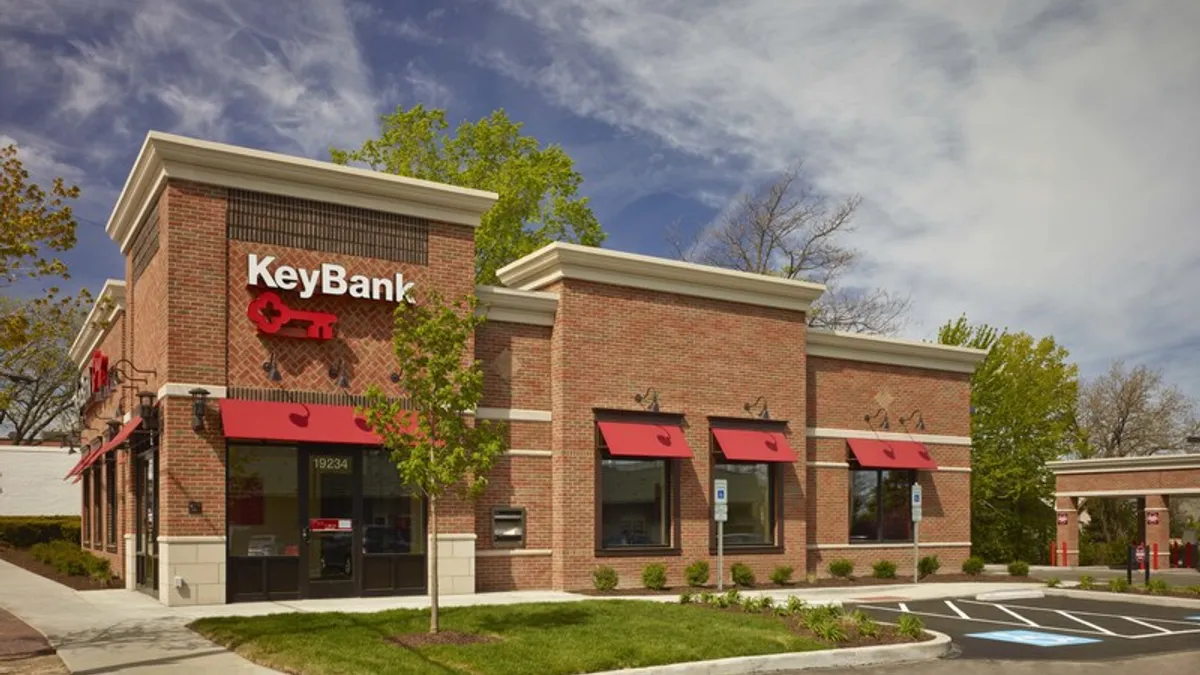A shareholder sued KeyBank on Friday, claiming the Cleveland-based lender misled investors about its liquidity when it revised its projection for net interest income this year.
The bank adjusted its NII estimate to a range of 1% to 4% — from 6% to 9% — and told investors that marginal funding costs were increasing along with rising market interest rates, according to the complaint, filed in the U.S. District Court for the Northern District of Ohio.
Timing, no doubt, plays a role in the complaint. The revised NII projection came March 6 — the start of a week that ended with the collapse of Silvergate, Signature and Silicon Valley Bank.
KeyBank’s share price dropped 3.3% on the day after the revision, then fell 27% on March 13 as market-wide confidence in regional banks plummeted. For perspective, a KeyBank share was valued at $18.15 on March 6, but $11.38 a week later, according to Nasdaq.
“[KeyCorp] has repeatedly assured investors that its strong core deposit base, in conjunction other funds, supports the company’s liquidity risk management strategy, and that the company’s liquid asset portfolio […] exceeds the estimated amount needed to manage through an adverse liquidity event,” the complaint said, according to Bloomberg Law.
The bank’s stock fell another 4.3% on June 12, the shareholder said, after KeyBank CEO Christopher Gorman and CFO Clark Khayat spoke at a Morgan Stanley conference and referenced the NII matter, higher interest rates on deposits — and upcoming regulator revisions to capital requirements.
Gorman and Khayat aren’t the only KeyBank execs listed as defendants in the suit. The shareholder listed former CEO Beth Mooney and ex-CFO Donald Kimble, too. That’s because the suit uses, as a baseline, KeyBank’s stock price from Feb. 27, 2020 — the day before Federal Reserve Chair Jerome Powell issued a statement signaling the central bank might cut interest rates in the run-up to what would become the COVID-19 pandemic. Mooney retired in May 2020. Kimble announced his retirement in November 2022 but stayed on until May 1.














